Last Updated on 12/08/2025
As we know, Link Building, also known as Inbound Links, is the process of gaining backlinks from other websites to your website. These backlinks help search engines determine the significance and popularity of the information on your website.
However, link building should be done naturally and ethically, avoiding spammy or black-hat practices that can result in fines or even lead to your website being blocked by search engines.
Buying backlinks is a method of acquiring a link to your website from another website. The main aim of a link buyer while purchasing backlinks is to improve the ranking of their website in SERPs, increase referral traffic, and generate leads.
Paid links can take many forms, such as paid guest posts, paid link insertions, and private blog networks.
Key Takeaways:
- Buying links can accelerate short-term growth, but it comes with risks if not done carefully.
- Natural link building is slow but sustainable and aligns with Google’s E-E-A-T standards.
- A hybrid strategy – high-quality paid placements + earned editorial links, is often the most effective.
Do people buy backlinks?
The answer is yes!

Buying Backlinks vs. Natural Link Building: A Side-by-Side Comparison
| Factor | Buying Backlinks | Natural Link Building (Outreach) |
|---|---|---|
| Cost | Varies widely ($50–$500+ per link) | Mostly time and effort; some cost if hiring outreach help |
| Time Investment | Fast results, minimal effort after payment | Time-consuming (research, outreach, follow-ups) |
| Risk Level | ⚠️ Higher (if done on spammy or irrelevant sites) | ✅ Low (Google-friendly and sustainable) |
| Scalability | Scalable with budget | Harder to scale; depends on quality content and relationships |
| Control Over Links | High – you choose the anchor text, page, and placement | Medium – depends on the editor or site owner |
| SEO Effectiveness | Quick gains if links are high quality and relevant | Long-term authority growth with safer outcomes |
| Compliance with Google | ❌ Not officially allowed (against Google’s guidelines) | ✅ Fully compliant if done naturally |
| Ideal For | Startups, affiliate sites, and agencies needing fast wins | Brands building long-term authority & reputation |
What is Link Buying?
Buying links (or purchasing links) involves paying another website to include a link to your website on one of their pages. This trick tricks search engine algorithms to make a website appear more prominently on search engine results pages (SERPs).
Link buying was a common technique used by SEO experts to raise websites’ rankings. However, search engines are increasingly intelligent and penalize websites that employ this approach, especially when using unethical SEO techniques, such as link scams.
Why Buy Backlinks in 2025?
Search engines interpret backlinks as indicating that other websites find your material interesting and relevant, making them crucial for search engine optimization (SEO).
Search engines evaluate the authority and reliability of a website by analyzing its backlinks. Therefore, acquiring many high-quality backlinks can help improve your website’s ranking in search engine results pages (SERPs).
Buying backlinks may improve your website’s search engine ranking, authority, and overall online exposure. The following are some other reasons for buying backlinks:
- It saves time
- Boost Domain Authority
- Improve Search engine rankings
- Drives more traffic to your website
- Helps to get results faster
- Enhance Online Visibility
- Enhance client loyalty
- Speed up indexing
Let’s take a look at what Google says about buying backlinks
Google does not appreciate it when people purchase backlinks or use other strategies to manipulate search results. Google does not oppose buying backlinks, but is against doing it unethically.
Therefore, it’s essential to understand Google’s stance on purchased links, as you don’t want to cross the line.
According to its Webmaster Guidelines, Google considers purchasing or selling links as part of a link scheme.
Link Scheme states, “Links that are part of a link scheme or that aim to influence PageRank or a site’s position in Google search results may be considered against Google’s Webmaster Guidelines. This includes any actions that affect links leading to or leaving your website.” As per Google’s original PageRank algorithm, Link building is among the top three search ranking factors.
Google encourages webmasters to focus on creating high-quality content, which often leads to backlinks from reputable websites.
They advise website owners to avoid using strategies intended to intentionally increase the number of backlinks pointing to their site, such as link purchasing, link trading, and participating in link schemes.
According to Google, examples of link schemes that destroy your site’s reputation in SERPs include buying or selling links that pass PageRank.

Search engines, including Google, use links to determine a website’s reputation. Link-based analysis is a useful method for calculating a website’s value. Both the quality and quantity of links are important for rating. Some webmasters buy and sell links without considering their quality, sources, and effect on their sites.
However, according to Google, not all paid links violate their guidelines. It is a normal part of the web economy when links are bought and sold for advertising, not to manipulate ranking in SERPs.
The action below needs to be taken as per Google’s guidelines:

Should You Buy Backlinks in 2025?
Buying backlinks is a controversial practice, yet it is also a common one in competitive SEO. If you’re a startup trying to break into a saturated niche, or a site with great content but no traction, buying backlinks can give you a much-needed jumpstart, but only when done strategically and transparently.
Case Study Example:
“A niche affiliate site bought 100 contextual backlinks over a 3-month period. By filtering only for DR 40+ websites with 1,000+ organic traffic, the site went from 0 to 22K monthly visitors and gained 50+ keyword rankings on Page 1. No penalties, but 12% of links had to be disavowed later due to poor quality.”
When You Should Consider Buying:
- You’re in a high-competition industry (finance, SaaS, health).
- Your site has solid on-page SEO and content, but a weak link profile.
- You’re using manual outreach with a trusted agency (no PBNs or spam).
When You Shouldn’t:
- You’re buying from Fiverr, resellers, or sellers offering “DA 90 links for $5.”
- Your content quality is low or appears to be AI-generated spam.
- You have no strategy, just chasing numbers.
Read our guide on ethical link building for safer alternatives.
Link Building Pricing
In 2025, we conducted a link-building survey, reaching out to over 100 SEO professionals to understand the typical amount they pay per link.
Most reported paying over $1,000 per link, which likely reflects PR-style placements. The second largest group indicated a price range of $250 to $500 per link, commonly associated with editorial backlinks, niche edits, and guest posts.

Why shouldn’t you risk your money buying backlinks?
It may seem attractive to give $XX and receive a link, as there would be no need to spend hours researching, customizing outreach emails, or facing rejections. However, this approach has disadvantages.
- You can buy links for a significantly low price.
A website will not rank with a single link. Spending $362 on a link will quickly burn your money. The links built through natural outreach are also paid links, as outreach takes time, and time is money. Now, it is entirely up to you whether you spend $360+ and buy a link or spend time and effort to earn a link ‘naturally.’
- Paid links are usually low-quality
If a website accepts links based on exchanging cash, it will link to much unrelated junk. It will create a bad neighborhood of links, which is unsuitable for your website’s reputation.
- You will receive a manual action.
Suppose your website is not in compliance with Google’s guidelines. There will be a drop in your search rankings, and your site will be removed entirely from Google’s search results. However, manual actions are rare nowadays, and you can recover from them.
Google will send you a warning in the search console. It will provide information about the types of pages affected and guide you through fixing the issues.
If you want Google to know about these links, you can use the paid links report option to bring them to their attention.
Are you planning to buy backlinks? Check out the Good and bad before you proceed.
We will discuss some ways to buy backlinks and the risks and rewards associated with each approach.
There are many freelance websites, such as Fiverr or PeoplePerHour, that offer link-building services. These services are primarily inadequate, as they offer numerous backlinks at a low price. Be cautious when signing up for any of these services, as those that offer numerous links at a low cost often take shortcuts and may employ a black-hat approach.
A good white-hat approach involves contacting good websites, negotiating with site owners, and creating high-quality content. Some freelancers also generate links using spammy forum sites. It is best to avoid such link-building services.
A. Niche Edits

Niche edits is a popular link-building service for SEO that has grown in popularity over the years. The primary benefit of using niche edits is getting backlinks from aged content that has already built authority. This means your link will have more authority than brand-new backlinks acquired using other link-building methods.
The website owner will request payment for this service, or you can offer payment in advance.
It is hard for Google’s algorithm to spot this type of backlink. If you are careful, it will be tough to differentiate a niche edit from an organic one if a website owner is willing to link to your site for money.
You must be vigilant about how many other sites they have the same agreement with. But if these websites do it in excess, then Google’s algorithm will detect this link farm, and being associated with one of these sites can negatively impact your ranking in SERPs.
It is best to thoroughly analyze any website you plan to pay for niche edit links. Just ensure you purchase only high-quality backlinks.
B. Choose Reliable Backlinks Services
One of the most effective and easiest ways to get backlinks is to buy them. You can order such links or buy them, for example, through various SEO agencies such as Marketing Lad. You get the opportunity to:
- Reach the top 10 in Google, Bing, Yahoo, AOL, and over 500 other search engines with lightning speed
- Easily attract +30,000 monthly visitors to your website within the first 3-6 months
- Make your backlink profile unbeatable
- Increase your sales and site traffic 3-5 times in 60 days.
This way, you can be sure that your backlinks matter. Buying backlinks has been proven to be the fastest and most effective way to promote your website. If you combine organic, free ways to get backlinks with the method of buying them, believe me or not, you’ll be very impressed with the results.
C. Paid Guest Posts

A paid guest post is a guest post you write for another site. The site owners sometimes pay you in return for contributing content. Sometimes, they ask you to pay them to publish your content. It is a good way to buy high-quality backlinks.
However, if you place a guest post on the wrong site, you will get a penalty. Additionally, you must create the article, which will incur extra costs if you choose to outsource or consume time if you decide to write the post yourself. It has many advantages, too, as you might also find sites that won’t charge you. In many cases, this is especially true if you have already created good content.
D. Sponsored Content

It is one way to buy completely safe links. You can pay to place sponsored posts on websites. The difference from guest posts is that the website owner will make it clear, keep the post as sponsored, and give the link a rel=’’sponsored’’ or rel=”nofollow’’ tag.
This tag will make it clear to the Google algorithm that you have paid for the post. In that case, Google bots will not crawl the link. But these links are less valuable than regular follow links. You can generate traffic from your website and increase your brand’s exposure.
How Much Do Backlinks Cost?

The cost of buying backlinks can vary widely depending on several key factors:
- Domain Authority or Domain Rating (DA/DR) of the linking site
- Link Type (DoFollow vs. NoFollow)
- Placement Type (Guest Post, Niche Edit, Sidebar, etc.)
- Relevance of the Site’s Niche
- The level of manual outreach or editorial control involved
Generally, the more authoritative and relevant the linking website, the higher your price for the backlink.
Backlink Cost Comparison Table
Pro Tips:
- DoFollow + Niche Relevance = The Best Value for Long-Term SEO.
- Always check for real traffic, not just DA/DR. A DR 60 site with no traffic may offer little SEO value.
- Use trusted platforms like Collaborator, GetMeLinks, or manual outreach for high-quality placements.
Why Should You Pay for Backlinks?
Due to the importance of backlinks to organizations like yours, website owners charge for them. Your search engine rating may increase if you purchase backlinks, so long as you avoid getting identified. None would do it if the risk weren’t worth it.
Placing a link on a website also requires time and work. Website owners believe that getting paid for their value is only fair. Bloggers are one type of website owner who may request payment to include your hyperlink in their content.
If you’ve ever seen an ‘income report’ from a well-known blogger, you’ll note that sponsored posts account for a sizable amount of their money.
Bloggers Who Sell Backlinks
We found some bloggers earning enormous monthly money via “sponsored posts.”
1. Fitmommyinheals.com
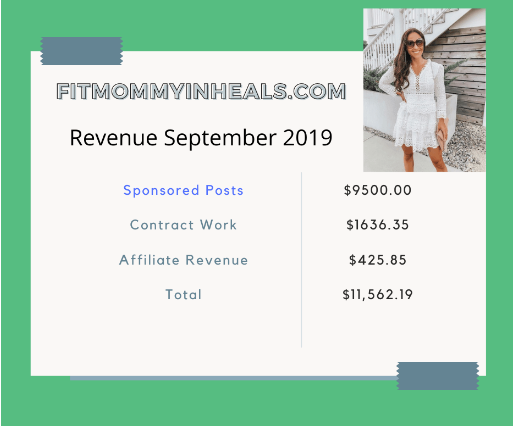
Here is a blogger who earned a mind-blowing $ 9,500 from sponsored posts in a month!
2. Wanderluststorytellers.com
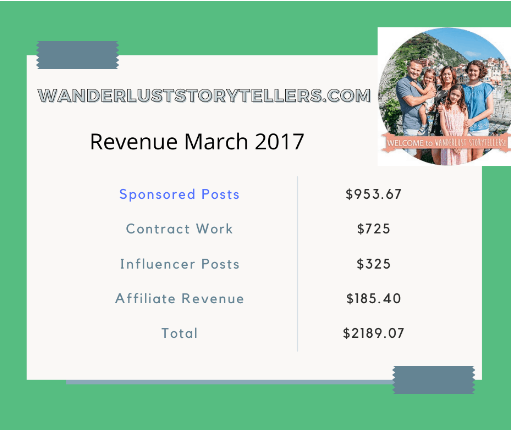
This independent travel blogger’s revenue report is much more modest. Even so, earning $1,000 per month from sponsored articles isn’t terrible.
3. Fitnancials.com
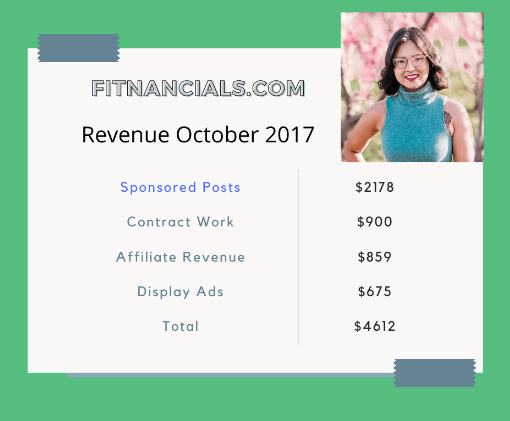
This personal finance and money blogger reported earning $4,612, with sponsored posts being her primary source of income.
The motive is quite evident from the above. Bloggers and content websites rely on the link-building business to generate money and, in many cases, to realize their ambition of working from anywhere in the world as a digital nomad.
A website that links to another website in its content transfers PageRank to that website. However, their SEO efforts will be more challenging because the site they link to is more likely to rank for rival keywords.
What is PageRank?
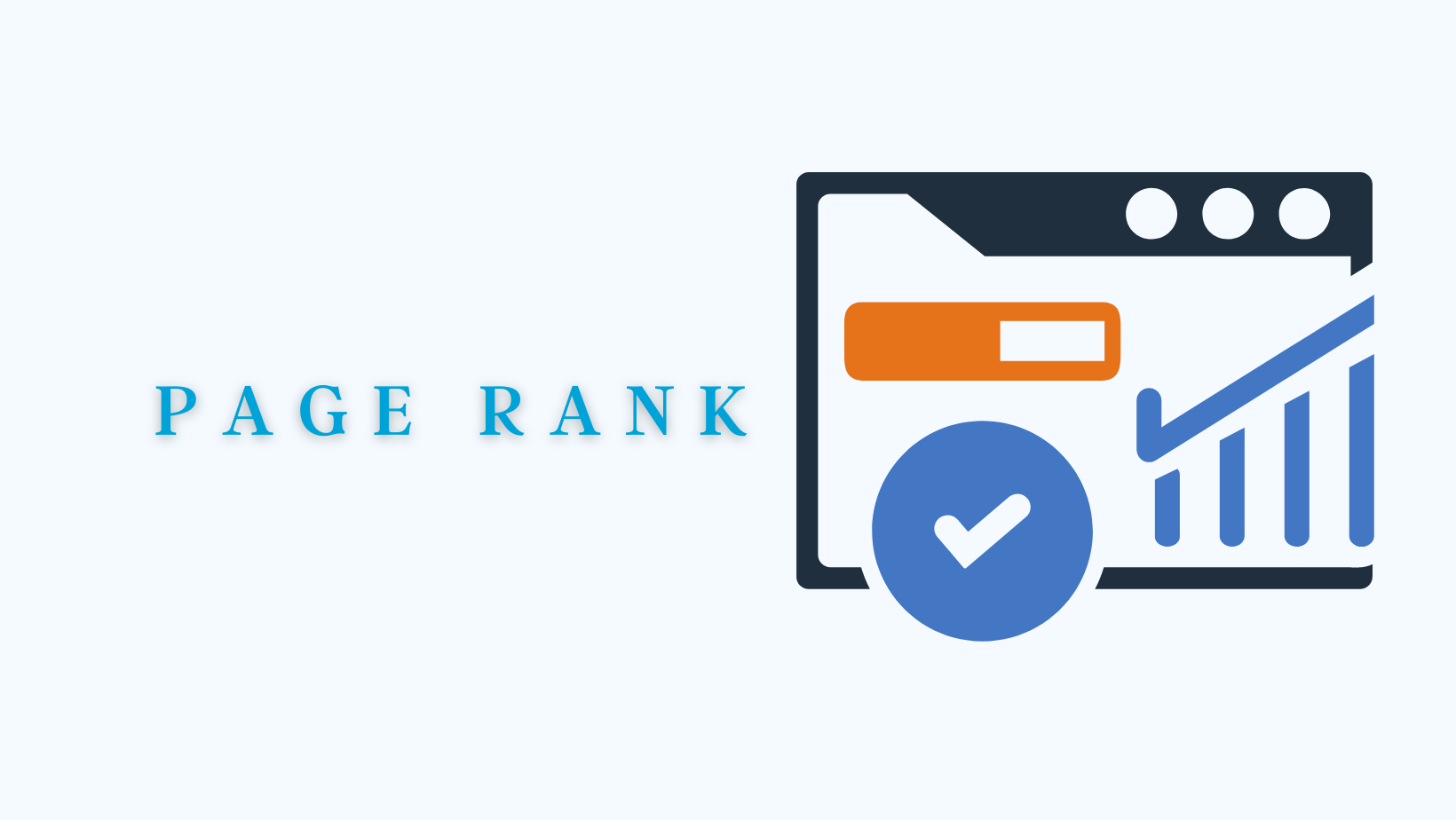
Google has implemented an algorithm similar to this to help assess the overall authority of a website and its pages.
A website’s PageRank, a number ranging from 0 to 10, is determined based on its usefulness and relevance to users.
What Is a Blogger Income Report?
Blog income reports show how much a blog earns from advertising, affiliate links, web hosting fees, and sponsored content.
The Risks of Buying Backlinks
That is the most often-asked question about links. To respond to it, you must understand precisely what a purchased backlink is. A link is considered a paid link whenever money, goods, or services are exchanged in return.
Google frowns on exchanging money for links or posts containing links, exchanging goods or services for links, or sending someone a ‘free’ product in exchange for them writing about it and including a link.
It’s not always a good idea to purchase backlinks. There are risks, especially if you don’t have a reliable SEO plan or experienced link builders working for your business. There are two key reasons to avoid purchasing backlinks.
1. Purchasing Low-Quality Links from Spammy Sites
Some bought links, such as those sold on forums or directories, are openly ignored by Google and other search engines as black hat SEO practices, which means you’re unlikely to profit much from them.
Paying for links on less reputable sites or sites with a low domain ranking will not help you either. While the possibilities of such connections flipping around and harming your rating aren’t huge, you’ll be wasting your money at best.
2. Google May Take Manual Action Against You
This occurs when a human reviewer determines that one or more of your website’s pages violate Google’s standards. This could cause your website’s traffic to collapse, making it difficult to recover. Your website can be deleted from Google.
However, manual link spam operations are pretty uncommon today. Google is becoming increasingly skilled at identifying and disregarding spam or poor-quality links.
How to Buy Backlinks Safely?
Let’s be clear about what you shouldn’t do if you’re thinking about purchasing backlinks:
- Avoid purchasing backlinks from Fiverr, Upwork, Freelancer, or any other website that offers cheap tasks. The cost is low for a reason. Such websites almost always sell poisonous link spam that causes more harm than benefit.
- Avoid purchasing backlinks from link networks, such as private blog networks (PBNs), or websites that openly sell links. These kinds of sponsored links receive a rather harsh penalty from Google if they can be found.
These link-building experts might offer a risk far more significant than any potential profit.
While buying backlinks can be an efficient approach to boosting your website’s rating, it is essential to do so securely and responsibly. Here are some ideas to help you acquire backlinks properly:
1. Is the Site Trustworthy?
Based on your initial impressions, does the website appear trustworthy? If you landed on the page, would you stay and read it? If the answer is no, following the link is usually not worthwhile.
Here are a few indications of a questionable website in case you’re having trouble responding:
- A poor design
- No connections inside the text
- The text contains no graphics.
- Author biographies that are unclear or absent.
2. Is the Site Selling Links?
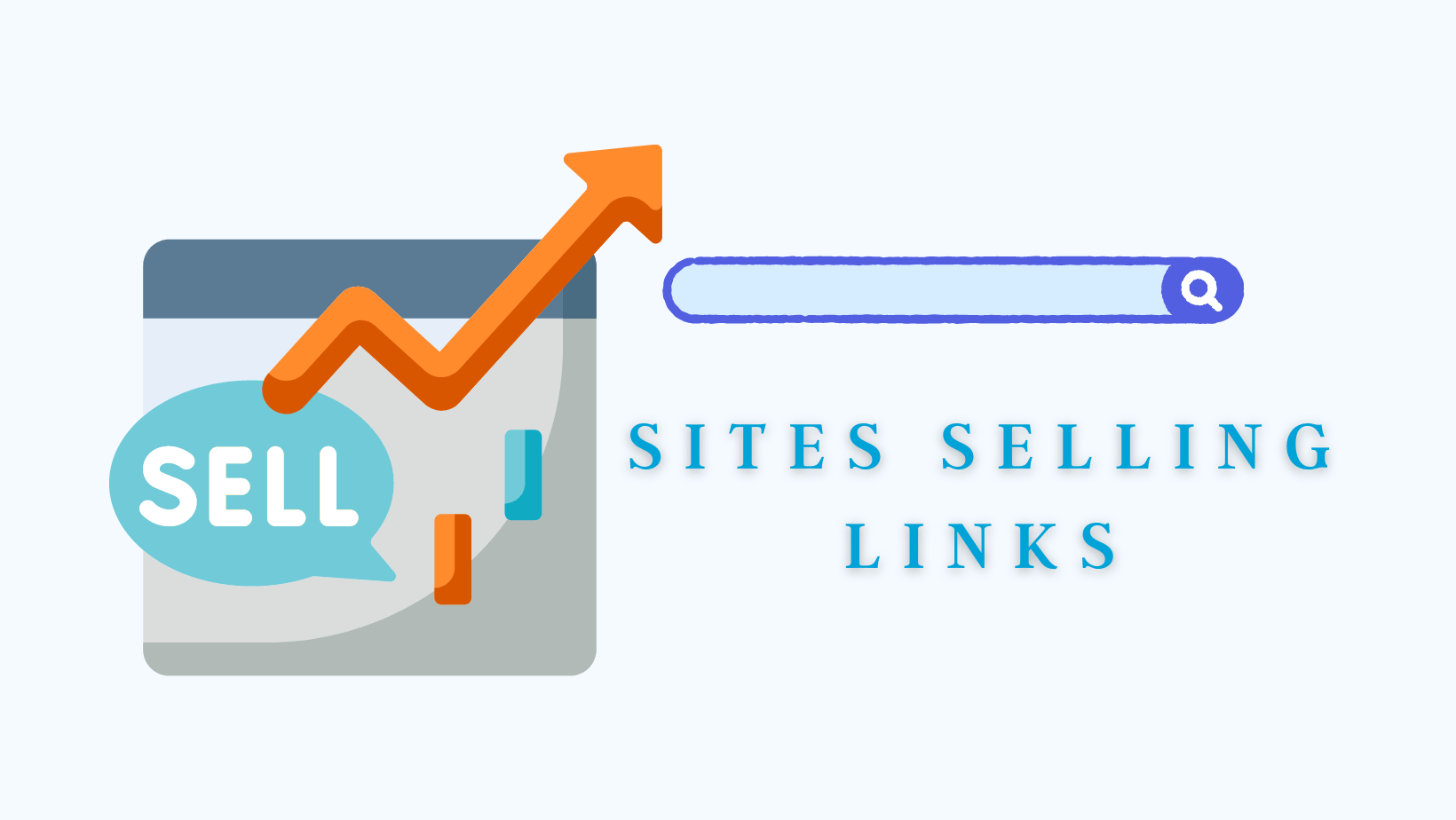
Never attempt to obtain links from sites with clear link dealers since a Google penalty is not far behind. The links you get from the websites will then lose their value.
You can typically detect if a website has been selling links by looking at recent articles for weirdly placed links with profitable keywords in their anchors.
3. Avoid Purchasing Low-Quality or Quantity Links
The quality of the website from which you wish to obtain links determines whether or not you should purchase backlinks. This is true of all link development strategies, not just link buying.
Google and other search engines can’t tell if a link was purchased. All they have are clues that a site is paid for links. If the search engine decides it doesn’t like a site that connects to yours, you might face a penalty, regardless of whether you paid for the link.
Before paying for a link, you should thoroughly research the website. Look for unique, high-quality material and flexibility regarding who owns or controls the site, the amount of traffic it receives, and whether it has an active audience.
If the website you wish to connect from meets these requirements, you can consider purchasing a link. If it doesn’t, you should avoid it.
4. Keep an Eye on Your Link Profile
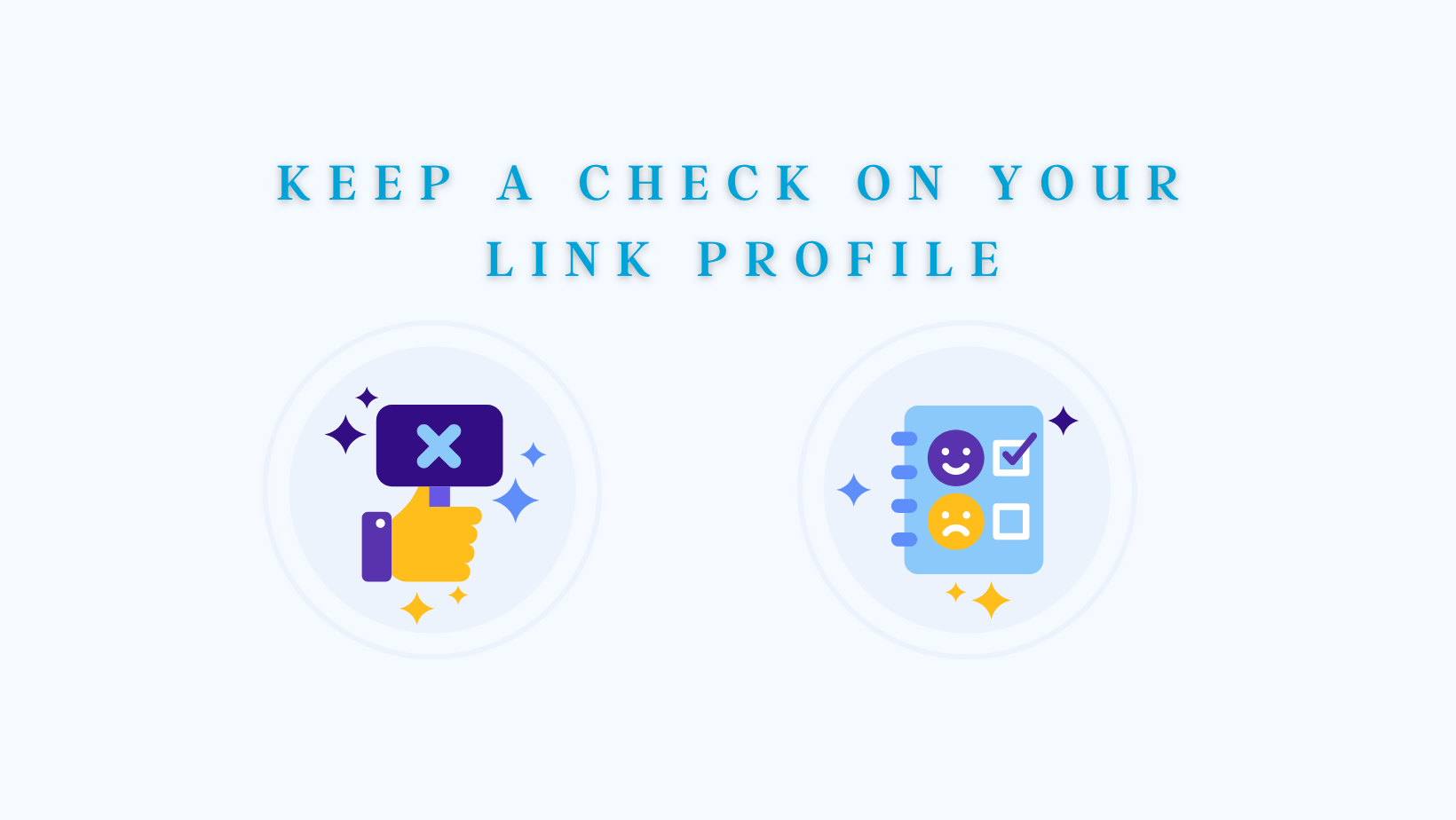
You must constantly check your backlink profile to ensure you aren’t purchasing spammy or low-quality backlinks. Utilize a backlink checker tool to assess the quality of your backlinks and remove any poor-quality ones. You can use Google Search Console, Semrush, or Ahrefs.
Conclusion
Buying backlinks may either help or harm your business, so be sure to follow the regulations. Follow these tips to get the most sponsored links and prevent a Google penalty.
Developing an action plan before investing in backlinks involves selecting the sites and keywords you want to target, prioritizing them in order of importance, and researching your competitors.
Remember that not all backlinks are created equal; therefore, ensuring that the backlinks you purchase will benefit your website is essential.
Everyone benefits if you don’t purchase links to trick Google’s algorithm. Buying backlinks may be advantageous if you adhere to strict link selection procedures and criteria. When careful link-building is employed, there is no need to distinguish between sponsored and natural connections.
We have given an overview of whether you should buy backlinks. Although the success rate is high, the threat of a Google penalty is significant. Before purchasing backlinks, carefully analyze the website.
FAQs
Buying backlinks is not officially allowed by Google and can result in manual penalties if done recklessly. However, white-hat link-building services that offer placements on relevant, high-authority websites with real traffic are considered safe and effective when done correctly.
Safe backlink buying typically occurs through trusted SEO agencies that specialize in manual outreach, niche edits, or guest posting. Some popular sources include:
– Outreach-based agencies (like those listed on Marketing Lad)
– Digital PR firms
– Bloggers in your industry
Backlink pricing depends on the website’s domain authority (DA/DR), traffic, niche, and placement type. Here’s a rough range:
– Guest Post on a DR 30–50 site: $100–$250
– Link insert on niche blog: $80–$200
– High-DR editorial link: $300+
Paying more doesn’t always mean better; evaluate metrics, content quality, and site reputation.
Earning backlinks through high-quality content is the safest and most Google-compliant approach, but it’s a slow process.
When done ethically, buying backlinks can accelerate SEO results, particularly for new websites. The best strategy is a hybrid approach: build fantastic content and support it with a few paid, contextual placements to gain momentum.
Yes, when done right. Backlinks are still one of Google’s top ranking factors. Quality links from relevant, authoritative sites can:
– Improve domain authority
– Increase keyword rankings
– Drive referral traffic
However, poor-quality or irrelevant links can have the opposite effect. Focus on relevance, authority, and content alignment.
Read more on:


